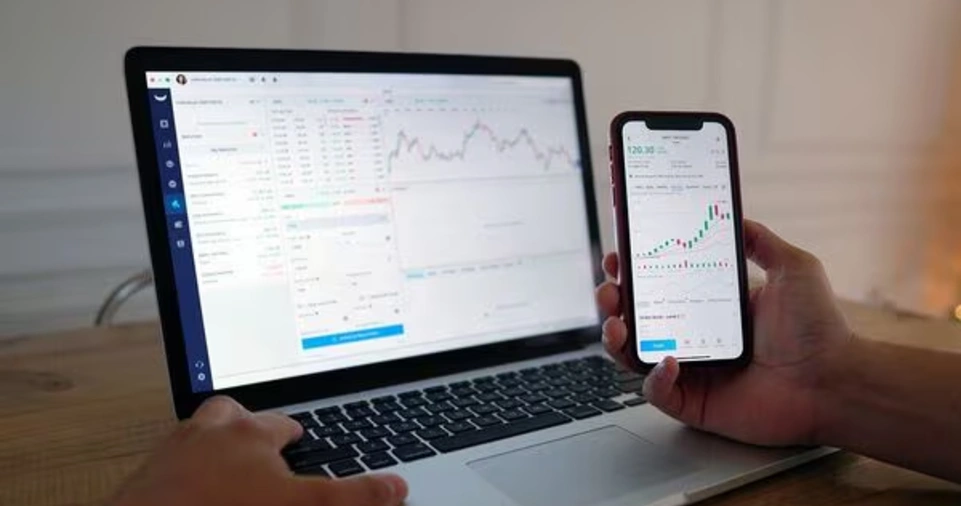Blockchain technology is reshaping industries across the globe, and one of its most promising applications is in supply chain management.
Traditionally, managing a supply chain has been fraught with challenges such as inefficiencies, fraud, and a lack of transparency.
Blockchain offers a transformative solution to these problems by providing a decentralized, immutable, and transparent platform for tracking goods from their point of origin to the final consumer.
Supply chain stakeholders, including suppliers, manufacturers, distributors, and retailers, can benefit from blockchain’s ability to create a unified, secure ledger that facilitates real-time communication, enhances traceability, and reduces operational costs.
As supply chains become more global and complex, the need for reliable, transparent, and efficient systems grows, making blockchain an ideal fit.
In this detailed guide, we’ll explore how blockchain can be used to enhance transparency, traceability, efficiency, and trust within supply chains.
We’ll also discuss practical applications, implementation strategies, challenges, and the future of blockchain in supply chain management.
What is Blockchain in the Context of Supply Chain Management?
Blockchain is a decentralized digital ledger technology that records transactions across multiple computers in such a way that ensures the records are secure, transparent, and unalterable.
In the context of supply chains, blockchain enables businesses to record and verify transactions—ranging from the movement of goods to payments and compliance verification—in a single, immutable ledger.
Unlike traditional systems where data is stored on centralized databases controlled by individual entities, blockchain distributes the data across a network of computers (nodes), making it difficult for any single party to alter the records without consensus from others.
Each transaction or event in the supply chain is recorded in a “block,” and once a block is completed, it is added to a “chain” of previous blocks.
This ensures that all parties involved in the supply chain have access to the same real-time data, significantly reducing the risk of fraud, errors, and delays.
In a typical supply chain, goods pass through many stages, from manufacturing to distribution to retail.
Blockchain technology allows each of these stages to be recorded in a secure, transparent, and immutable way, allowing for greater visibility, easier auditing, and more efficient tracking of goods as they move through the supply chain.
ALSO READ: Blockchain Platforms for Your Business: How to Avoid Costly Mistakes When Choosing 1
Key Benefits of Blockchain in Supply Chain Management

Enhanced Transparency
One of the most powerful advantages of blockchain in supply chain management is its ability to provide transparency at every step of the process.
In a traditional supply chain, data is often siloed within different systems and databases managed by individual stakeholders.
This makes it difficult to get an accurate view of a product’s journey or to trace the history of a product in the event of a recall or quality issue.
Blockchain solves this problem by providing a shared, immutable ledger that all supply chain participants can access.
This transparency improves accountability, as all actions are recorded in real-time, and everyone involved in the supply chain can view up-to-date information.
With blockchain, consumers can verify product information such as origin, quality, and authenticity, which is particularly valuable for industries like food, pharmaceuticals, and luxury goods.
Immutable Records
Blockchain ensures that data, once recorded, cannot be altered or erased, making it almost impossible for fraudulent activities to occur.
Each transaction is time-stamped and linked to the previous one, creating an unbreakable chain of records.
This feature is especially important for industries like pharmaceuticals, where counterfeit drugs are a growing problem.
By recording every transaction on a blockchain, stakeholders can ensure that products are genuine and have not been tampered with during transit.
Auditability
Since blockchain provides a permanent record of all transactions, it simplifies the auditing process.
Regulatory authorities and auditors can access the blockchain to verify compliance with safety and quality standards without the need for extensive paperwork or manual verification.
This reduces the time and cost associated with audits while enhancing trust between stakeholders.
Improved Traceability
Blockchain provides end-to-end traceability of products, enabling businesses to track goods from their origin to their final destination.
This is crucial for industries where knowing the origin and movement of products is essential for quality control, regulatory compliance, and customer trust.
Real-Time Tracking
Blockchain allows for real-time updates on the location and condition of goods as they move through the supply chain.
This is particularly useful for perishable goods, pharmaceuticals, and high-value items.
With IoT devices integrated into the blockchain, such as GPS sensors, temperature monitors, and RFID tags, businesses can track the precise location of their products at every stage of the journey.
For example, in the food industry, blockchain can record the temperature of shipments to ensure that perishable goods are stored and transported under the correct conditions, preventing spoilage and waste.
Enhanced Product Verification
Blockchain enables stakeholders to verify the authenticity of products at every stage of the supply chain.
For instance, in the luxury goods industry, blockchain can be used to prove that a designer handbag or watch is genuine and has not been replaced with a counterfeit.
Similarly, in the food industry, consumers can track the journey of a product from farm to table, ensuring that it is ethically sourced and free from contaminants.
Faster Issue Resolution
In the event of a problem, such as a product recall or quality complaint, blockchain makes it easier to pinpoint the exact batch or shipment that may be affected.
This allows businesses to act quickly, limiting the scope of recalls and reducing losses.
In traditional supply chains, tracing the origin of a problem can take days or even weeks.
Blockchain’s real-time tracking can cut this time down to hours, saving both time and money.
Boosted Efficiency
Blockchain can significantly enhance supply chain efficiency by automating and streamlining processes.
In traditional supply chains, many tasks are still done manually, which can lead to delays, errors, and inefficiencies.
Blockchain, combined with other technologies like smart contracts and Internet of Things (IoT) devices, can help automate and optimize supply chain operations.
Automated Workflows
Smart contracts are self-executing contracts with the terms of the agreement directly written into code.
When certain predefined conditions are met, the contract is automatically executed. In supply chains, smart contracts can be used to automate tasks like payments, quality checks, inventory updates, and more.
For example, a smart contract can automatically release payment to a supplier once goods have been delivered and verified, reducing delays and administrative overhead.
Smart contracts also help ensure compliance by automatically enforcing rules and regulations.
If a shipment doesn’t meet the required standards, the contract can trigger an alert or reject the shipment.
Reduced Paperwork
Blockchain’s ability to digitize and automate processes reduces the need for physical paperwork.
In traditional supply chains, managing and storing paperwork—such as invoices, receipts, and certifications—can be cumbersome and prone to errors.
With blockchain, all documentation can be stored securely in a digital format, and because the data is tamper-proof, the risk of fraud is minimized.
Streamlined Logistics
Blockchain also facilitates better coordination between different supply chain partners, such as suppliers, manufacturers, and logistics providers.
Real-time data sharing reduces the risk of errors and delays caused by miscommunication, ensuring that goods are delivered on time and at the correct location.
Increased Trust
Blockchain fosters trust among supply chain participants by providing a transparent, immutable, and secure system for recording transactions.
Trust is a critical component of any supply chain, as each stakeholder relies on the actions and honesty of others.
Blockchain helps to overcome this challenge by ensuring that all parties have access to the same verified information.
Proof of Authenticity
Consumers are increasingly concerned with the authenticity of the products they purchase.
With blockchain, companies can provide irrefutable proof of a product’s origin and journey, which can increase consumer trust.
For example, blockchain allows consumers to verify whether a piece of jewelry is made from conflict-free materials or if a food product was sourced ethically.
Regulatory Compliance
Blockchain helps companies demonstrate compliance with regulations and standards.
For instance, pharmaceutical companies can use blockchain to verify that their products meet regulatory requirements at each stage of the supply chain, from manufacturing to distribution.
This reduces the risk of penalties and ensures that products meet safety and quality standards.
End-to-End Visibility
Because blockchain records every transaction in the supply chain, stakeholders have access to complete visibility into the product’s journey.
This transparency improves communication and collaboration among partners, which builds trust and strengthens relationships.
Cost Reduction
Blockchain technology can lead to significant cost reductions in supply chain management by eliminating inefficiencies, reducing fraud, and streamlining operations.
While the initial cost of implementing blockchain may seem high, the long-term benefits in terms of cost savings can be substantial.
Fewer Intermediaries
Traditional supply chains involve multiple intermediaries, such as banks, auditors, and brokers, who add costs and delays to the process.
Blockchain reduces the need for these intermediaries by providing a direct, secure method of transaction and verification.
For example, blockchain can enable direct peer-to-peer transactions between suppliers and buyers, eliminating the need for third-party verification and reducing transaction fees.
Optimized Inventory Management
Blockchain’s real-time tracking capabilities allow businesses to monitor inventory levels more effectively.
By knowing exactly where goods are at all times, businesses can reduce overstocking and understocking, improving inventory turnover and reducing warehousing costs.
Reduced Fraud
Blockchain’s tamper-proof records reduce the risk of fraud, which is a significant problem in industries like shipping, where false claims about delivery or damaged goods can occur.
By ensuring that all records are immutable and transparent, blockchain minimizes the opportunity for fraudulent activity.
Practical Applications of Blockchain in Supply Chain Management
Food and Agriculture
Blockchain can play a crucial role in enhancing the transparency, safety, and sustainability of the food supply chain.
By providing real-time tracking of food products from farm to fork, blockchain ensures that consumers can verify the freshness, quality, and ethical sourcing of their food.
For example, in the event of a food safety issue, such as a contamination outbreak, blockchain allows for rapid identification of the affected products, minimizing the scope of the recall and ensuring that only the impacted batches are removed from shelves.
Pharmaceuticals
In the pharmaceutical industry, blockchain can help fight the growing issue of counterfeit drugs.
By tracking the entire journey of a drug—from production to distribution—blockchain ensures that only authentic drugs reach consumers.
Blockchain also facilitates compliance with regulatory requirements, providing an immutable record of every transaction that can be easily audited.
Fashion and Luxury Goods
In the fashion and luxury goods industries, blockchain is used to verify the authenticity and provenance of products.
With counterfeit goods becoming a significant concern, blockchain offers a secure way to track each item’s journey through the supply chain, giving consumers confidence in their purchases.
Automotive
Blockchain technology can help track parts and components used in the automotive industry, ensuring that they meet quality and safety standards.
Blockchain also facilitates the management of warranties, recalls, and maintenance records, providing a more efficient and transparent system for both manufacturers and consumers.
ALSO READ: How to Develop a Smart Contract on Ethereum
Conclusion
Blockchain technology offers a range of benefits for supply chain management, from enhancing transparency and traceability to boosting efficiency and reducing costs.
By adopting blockchain, businesses can address many of the traditional challenges of supply chain management, such as fraud, inefficiency, and lack of visibility.
However, while the potential benefits of blockchain are clear, companies must carefully consider the costs, integration challenges, and regulatory issues before implementing blockchain in their supply chains.
With careful planning and the right strategy, blockchain can provide significant long-term advantages for businesses and create a more transparent, efficient, and secure supply chain ecosystem.











